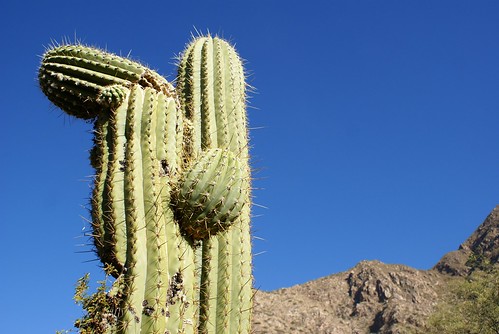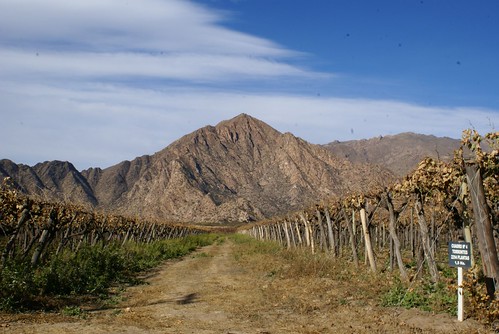
On one of my first days in Cafayate, I wandered up a dirt road on the outskirts of town towards a mountain stream said to boast a number of waterfalls along its path. The two hour walk took me past a number of humble, mud brick homes the same color as their sepia surroundings, acres upon acres of vineyards and a handful of wineries. When all this came to an end, I was left once again with the barren desert scape, speckled with yellowed-out grasses, low shrubs and regal cactus.
According to Sebastian, his brother is a bit of a martyr. He's been jailed and hauled off, beaten down by the police all for the cause of the community. Now, he's camped out full time at the sight I passed because if he leaves, the construction workers will start clearing the land and putting up posts to demarcate the territory for wineries.
"Some friends keep him company, bring him blankets and food." I think of Cafayate's bone-desert nights at 1800 meters above sea level."They can put up stakes, but we'll just take them down when they leave" Sebastian laughs proudly.
The townspeople of Cafayate tend to have a very different opinion of the issue. When you ask around, many agree that folks like Sebastian and his brother are inventing their indigenous heritage and their claim to the land. One older gent born and raised in the quaint little town explains, "A few years back nobody wanted to be indian. Now because of government subsidies everyone wants to be."
But the question is more complicated than just being indian or not. It has to do with being indian and where. Many of the tribal lands that used to be livable locations have long since converted into barren deserts. The community currently in the hills of Cafayate may not have existed since pre-colonial times, but it's possible it was formed later as indigenous peoples migrated in search of more habitable lands. Does having millennial roots in one place, give you the rights to land 50 or 100 km away in the face of some who may have been in the valley now for centuries? I'm inclined to say yes. But as usual, I tend to be enticed by the story of the little guy.

No comments:
Post a Comment